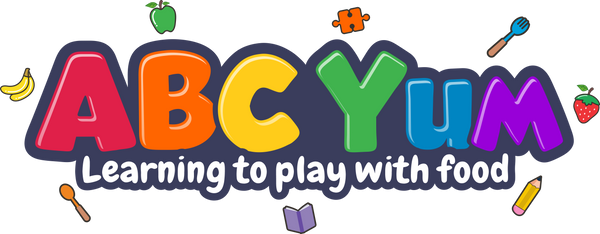Embarking on the journey of guiding picky eaters through the maze of mealtimes can be both challenging and rewarding. As therapists, we've witnessed firsthand the transformative power of food play. Join us as we share personal stories from our sessions (the names are not the real names of our clients), delving into the Do's and Don'ts of food play for picky eaters.
Don't: Force your child to interact with a new food if they don't want to.
Do: Respect your child's level of comfort and engage in their own level of food play.
Imagine this scenario: a young kiddo named Alex, hesitant at the mere sight of broccoli. Instead of pushing, we respected Alex's comfort zone, incorporating the green veggie into a playful food art session. Slowly, the once "scary" broccoli became a friendly element in Alex's edible masterpiece. For our picky eater Max, textures were a significant hurdle. Transforming meal prep into a sensory adventure, we allowed Max to feel, squeeze, and even create playful shapes with food. This personalized approach became a gateway for your child to explore new smells, textures, sensory components at their own pace.
Don't: Repeatedly ask your child to take a bite or try new foods during food play.
Do: Encourage fostering bonding moments and listen to your child's discomfort level.
During any food exploration session, it is so natural to want to continue asking my kiddos
interact with the foods using the different senses. However, continuously asking our kiddos to do an activity that they might not be ready for can do just the opposite of what we want – it can turn exploration sessions into battles. Enter Emily, who initially resisted anything unfamiliar and her mother (naturally) kept asking her to “take a bite”; “lick the food”; “smell the food” during our food play session, even when Emily would express her discomfort. When her mother stopped focusing on the outcome of interacting with the foods and started to appreciate the actual food play activity, Emily started to become curious and adventurous! For example, tomato stamping on paper evolved into a creative outlet, and soon enough, Emily willingly took a bite. Cherry tomatoes is now one of her staples in Emily’s lunchbox.
Don't: Give up too easily if your child doesn't show progress fast enough.
Do: Give your child the grace to develop and get comfortable with the food at their own pace.
Any good therapist will (annoyingly) keep reminding you that progress is slow and not linear. Honestly, this concept is so hard and I even catch myself wanting my picky eaters to progress faster… but remember, each person has their own time to develop. We can gently prompt them and can give them appropriate guidance, but forcing or pressuring children into trying foods they are just not ready for is not the answer! This is where being patient and celebrating small victories is key. Let’s paint a picture: progress with one of our most sensory aversive kiddos, Ethan, was gradual. From simply allowing him to play with food to involving him in easy, no-pressure cooking tasks, we celebrated every small victory. Just like Julia's slow dance with trying new foods, we learned that giving her time to adjust, even if it meant just having the food on the plate without eating it, eventually led to a breakthrough.
Don't: Engage in food play during therapy mealtimes.
Do: Try food play anytime outside of therapy mealtimes (during snack time or between sessions).
Our general rule? No food play during official mealtimes. Instead, we set up a mini food art station during snack breaks. It became a magical moment where our young kiddos could experiment with food without the expectation of a full-on meal. Sam, a 6 year old boy, found joy in creating "veggie monsters" during afternoon snack breaks. It not only made snack time exciting but also paved the way for incorporating these veggies into meals during therapy sessions.

